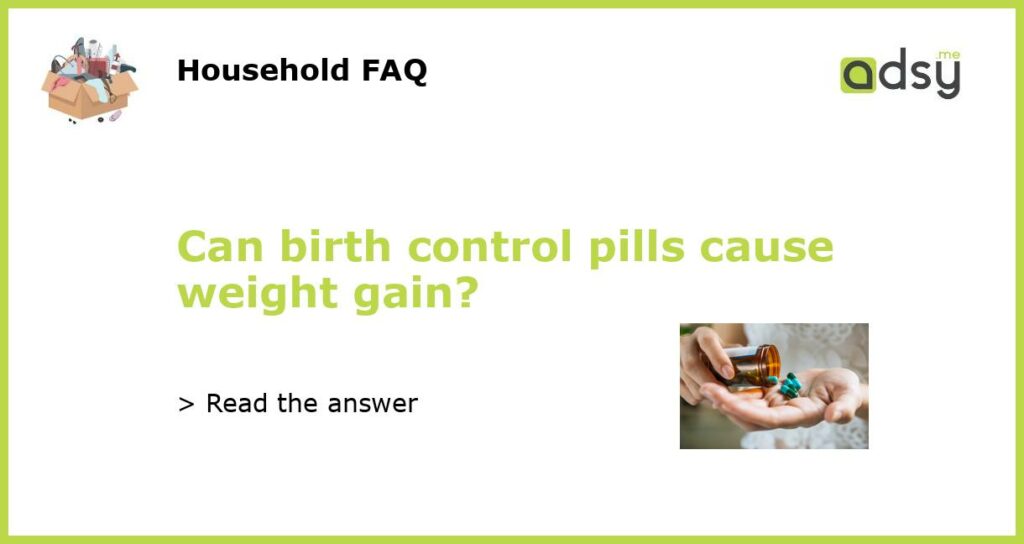Overview
One common concern among women who use birth control pills is whether they can lead to weight gain. This topic has been a subject of debate for many years, with some women reporting that they did experience weight gain while using the pill, while others did not notice any changes in their weight. In this article, we will dive into the research and evidence to determine whether birth control pills can cause weight gain.
It is important to note that every woman’s body is different, and how it reacts to medications can vary. Weight gain is a potential side effect of many medications, including birth control pills. However, research suggests that any weight gain associated with birth control pills is usually minimal and temporary.
What the research says
Multiple studies have been conducted to investigate the relationship between birth control pills and weight gain. According to a review published in the Cochrane Database of Systematic Reviews, most studies found no significant difference in weight gain between women using birth control pills and those using a placebo or non-hormonal contraceptive methods.
Furthermore, a large cohort study published in the American Journal of Obstetrics and Gynecology followed nearly 1,200 women over two years and found no significant weight gain in those using birth control pills compared to those using non-hormonal contraceptives.
While some individual anecdotes suggest a connection between birth control pills and weight gain, it is important to consider that weight fluctuations can occur due to various factors such as lifestyle changes, hormonal fluctuations, and genetics.
How hormones may influence weight
Birth control pills contain hormones that can affect the body’s overall hormonal balance. These hormones include estrogen and progestin, which can play a role in fluid retention and appetite regulation.
Estrogen, in particular, is known to cause water retention in some individuals, leading to a temporary increase in weight. It is important to note that this weight gain is typically due to water retention and not an increase in body fat.
Additionally, some women may experience increased appetite while using hormonal contraceptives. This increased appetite, coupled with water retention, could potentially lead to weight gain. However, research suggests that any weight gain experienced by women using birth control pills is generally minimal and often not clinically significant.
Individual variations and other factors
It is essential to recognize that every woman’s body is different, and individual factors can contribute to weight changes while using birth control pills. These factors include genetics, lifestyle choices (such as diet and exercise), pre-existing medical conditions, and other medications being taken simultaneously.
Some women may be more susceptible to weight gain due to their genetic makeup or other underlying health conditions. If you are concerned about weight gain while using birth control pills, it is advisable to consult with your healthcare provider.
Additionally, lifestyle choices, such as poor diet and lack of physical activity, can contribute to weight gain regardless of contraceptive use. It is essential to maintain a healthy lifestyle overall, including a balanced diet and regular exercise, to support weight management.
Talking to your healthcare provider
If you are experiencing weight gain or have concerns about weight changes while using birth control pills, it is crucial to discuss these concerns with your healthcare provider. They can provide personalized advice based on your individual health history and recommend alternative contraceptive options if necessary.
Remember that weight gain caused by birth control pills is usually minimal and temporary. It might be helpful to track changes in your weight over time to determine if there are any consistent patterns or correlations with medication use.
Ultimately, it is essential to make an informed decision about contraceptive options based on your individual needs and preferences. Your healthcare provider can guide you in selecting a contraceptive method that aligns with your health goals and addresses any concerns you may have.






